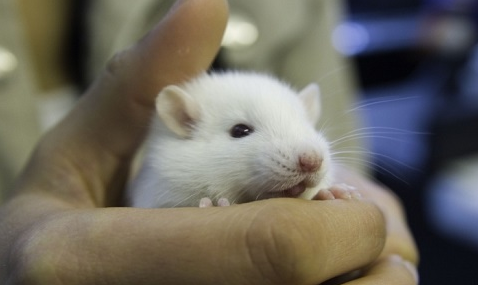Scientists Discover Gene That Makes Rats Prone to Cannabis Use
Although some regions of the world have fully legalized cannabis and the plant is now recognized as an effective treatment for many chronic conditions, medical professionals strongly advise pregnant women to avoid consuming cannabinoids or being exposed to cannabis smoke. This caution is due to the fact that science still does not fully understand how the plant’s active compounds may affect the health and cognitive development of a child.
For the most part, these restrictions are based on precautionary measures similar to those applied to tobacco, alcohol, and opioids, which are already known to significantly impact fetal development and a child’s health after birth. However, it remains unclear whether cannabinoids have similar negative side effects.
Recently, American scientific journals published material suggesting that men planning to become fathers should also avoid cannabis use before conception. According to this research, if cannabinoids and their metabolites have not fully cleared from the father’s body before conception, there is a risk of passing on a gene that predisposes offspring to cannabinoid use and negatively affects their ability to concentrate and think rationally.
The Study: THC Exposure in Rats
In this study, scientists from Duke University gave a test group of rats 2 milligrams of pure THC daily for 12 days before mating. Another group of rats, which had no exposure to cannabinoids, served as the control group. It’s worth noting that the university had previously published another study on the effects of cannabis on human reproductive health, claiming that high concentrations of THC can reduce sperm activity and alter their genetic structure, with evidence from both mice and human volunteers.
At first glance, the test group produced offspring that appeared physiologically and psychologically healthy, with little difference in life indicators compared to the control group. However, when researchers conducted tests to measure attention and intelligence, they found significant differences in the abilities and reaction speeds between the two groups.
Interestingly, similar tests conducted on the parent rats showed no significant differences between the groups. But among the offspring of the THC-exposed rats, the young animals were much less physically active than their control group peers. Additionally, attention tests revealed that the THC group’s offspring had a much lower ability to maintain long-term focus on a single object or activity.
“Based on the observed behavioral patterns, we can assume that cannabis use by men before attempting to conceive may significantly affect their children’s future behavior, most likely due to the transmission of a modified gene,” the study concludes. “The behavioral changes observed in the offspring of THC-exposed rats were long-lasting. The animals continued to show reduced activity and attention span throughout their lives.”
The researchers note that, on one hand, cannabis consumption does not affect the behavior and health of the parent organism. On the other hand, they claim that plant metabolites in the human body could cause significant behavioral changes in their children if the genetic material used for conception contains cannabinoid metabolites.
How Relevant Are Rat Studies to Humans?
Many may wonder: “How do behavioral patterns observed in rats relate to humans?” This is a fair question, but not entirely accurate, given why rats are so often used to test the effects of cannabinoids. Rats, like other rodents, share an evolutionary branch with humans, resulting in similar organ structures and genome composition. The rat brain responds to most external stimuli and develops in a way very similar to the human brain, making them ideal subjects for studying the effects of cannabinoids on brain health and function.
Thanks to such experiments, scientists have discovered the neuroprotective properties of THC and CBD, which help protect the brain from the progression of Alzheimer’s, Parkinson’s, and other similar diseases.
Dosage and Experimental Conditions
It’s important to note that during the experiment, the rats consumed a relatively high dose of cannabinoids based on their average body weight. The test group received up to 2 mg of THC per kilogram of body weight daily for 12 days. To illustrate, this would be like an 80-81 kg man consuming up to 162 mg of pure THC with food every day for almost two weeks. Considering that one gram of cannabis with 20% THC contains about 200 mg of pure THC, it’s clear how much the animals actually consumed.
Although the researchers used THC extracts in a 10% ethanol solution (alcohol), they deny that this standard experimental mixture could have negatively affected the genes or health of the parent rats in the test group.
Conclusion and Future Research
In any case, the phenomenon requires further, in-depth investigation, even though the initial findings align with other studies, such as the controversial research suggesting that THC can negatively impact sperm activity and viability.



